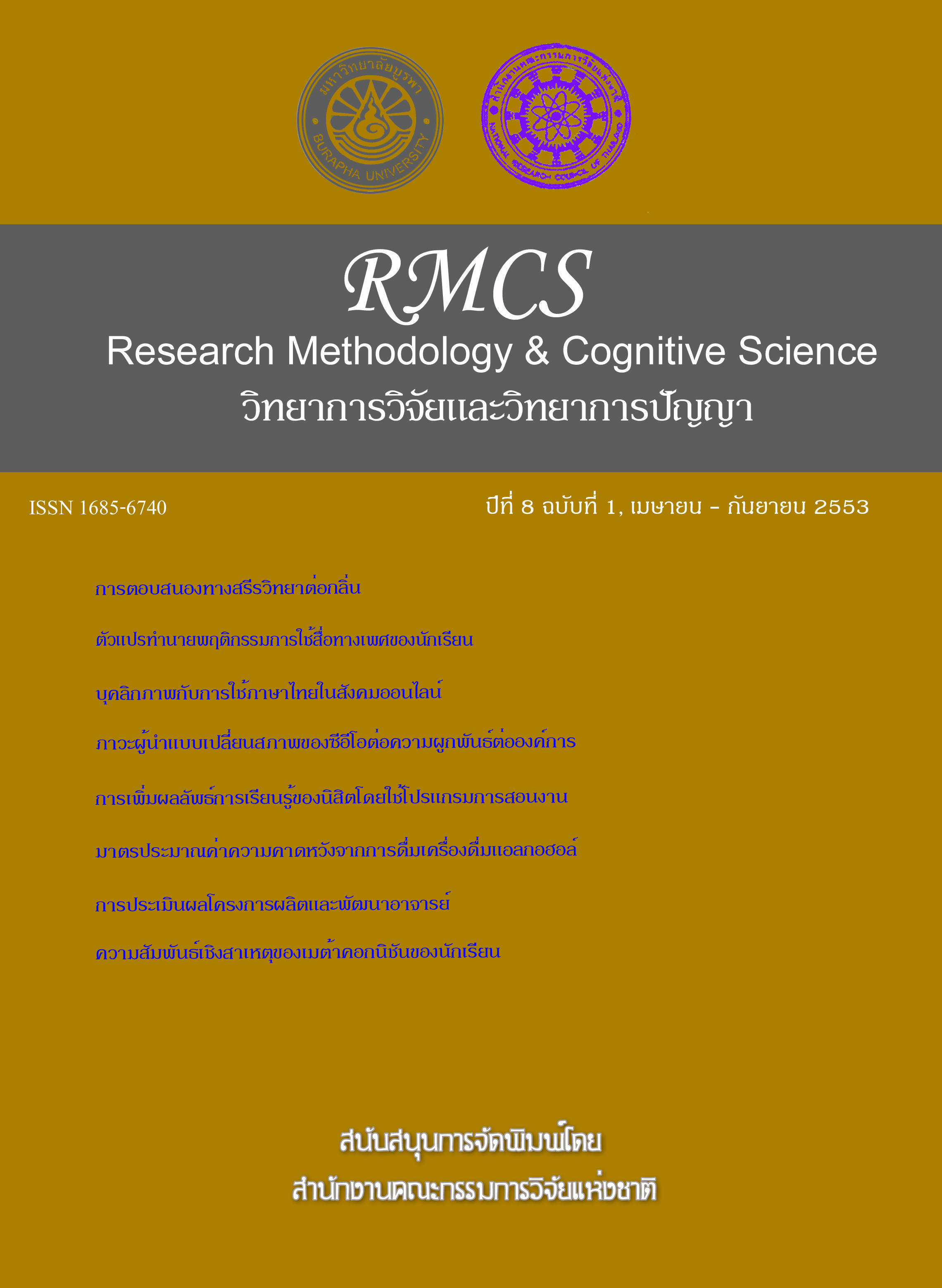การติดตามประเมินผลโครงการผลิตและพัฒนาอาจารย์ของสถาบันอุดมศึกษาในประเทศไทยสามโครงการ
Main Article Content
Abstract
Follow-Up and Evaluation of Three Scholarship Projects for Promoting Staff Development in Higher Education in Thailand
This study involved three scholarship projects designed to promote staff development in Thai education: the Instructor Development Project, the Instructor Development in Critical Shortage Fields Project, and the Instructor Development for the Information Campus of Thailand Project. Objectives were to assess the working results of the projects; to follow up on the progress of the scholarship recipients; to study the satisfaction of the scholarship recipients and higher education institutions; and to examine problems, obstacles, suggestions and needs of the scholarship recipients and institutions. Data were gathered in several ways. Indepth interviews were used with four administrators and fund officials in the Office of the Higher Education Commission, while structured interviews were used with forty-eight administrators and fund officials in twentyfour higher education institutions. Questionnaires were developed to survey the 2,336 scholarship recipients who had graduated and resumed working. Quantitative data analysis focused on the calculation of suitable descriptive statistics, while qualitative data were analyzed though content analysis and analytic induction. Findings were as follows: 1. The performance of the three projects achieved the set objectives. Of the 7,422 scholarships allocated, 3,490 recipients (47.02%) had finished their study, with the majority of the rest still engaged in study at the time of the research. 2. Regarding progress after graduation, it was found that 71.24% held instructor appointments, 22% assistant professorships, 6.59% associate professorships, with 0.17% appointment at the full professor level. 3. Regarding the satisfaction of the recipients and higher education institutions, it was found that the recipients and institutions expressed a high level of overall satisfaction. 4. The problems and obstacles noted had to do with recipients receiving their funds late, changing the fund officials too often, and a scholarship manual that was not updated. Officials suggested that there should be a revision of the manual every academic year. In addition, higher institutions recommended more funding. 5. Most of the scholarship recipients in the three projects resumed working after their graduation. Only 0.66 percent resigned, and 0.70 percent transferred to other institutions before the compensation period ended—major reasons related to family movement.

